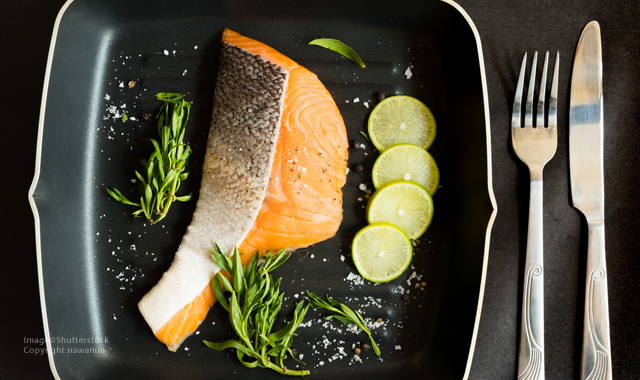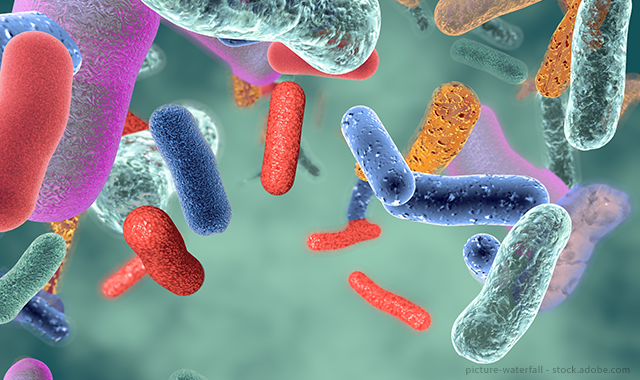Take a bite out of nutritional counseling
As a child of the ‘80s, I’m a proud Flintstones kid!Every morning, mom would hand us a colored character from our vitamin jar, ensuring we were fueling our cells with nutrition and strength.
As a child of the ‘80s, I’m a proud Flintstones kid!
Every morning, mom would hand us a colored character from our vitamin jar, ensuring we were fueling our cells with nutrition and strength.

In addition, I distinctly remember mom and dad teaching us life lessons about vitality such as “When you go to sleep, your cells can fix themselves,” “Carrots will help you see better,” “If your tummy hurts, eat an apple” and my Dad’s favorite once I overachieved my way through high school, “Katrina, you’re burning the candle at both ends”-in fact, I think he just said this to me the other day if I’m not mistaken!
While these phrases might sound remedial, I recognize how they’ve impacted how I address my health today. Taking a bite out of Dino’s orange head is a recurring childhood memory that has conditioned me to introduce healthy habits as a now 30-something with wildly different nutritional needs.
More from the author: Veterinary dentistry barks up the right tree
With the evolution of the high-carbohydrate/low-fiber Western diet and the introduction of fad diets such as paleo, keto and intermittent fasting, to name a few, I believe diet has become a challenging, provocative and wildly unique topic for many. As a clinician, I recognize that my patients present with varying dietary restrictions and habits, and more now than ever, research is pointing to diet as the richest source of the most vitamins and nutrients essential for life sustainability.
Additionally, nutrition has the opportunity to support the work we do as clinicians in healing the oral cavity and reducing the burden of inflammation on a systemic level. When introduced correctly, nutritional counseling can improve our clinical outcomes while also improving patient commitment to a successful therapy.
As a periodontal hygienist, I love discussing the role nutrition plays in the management of oral disease, and as such, this article unpacks the top three nutritional components I counsel my patients on most to ensure a successful outcome following periodontal surgery.
Click through the slides to read more.


Vitamin C
While the benefits of Vitamin C are widely known, it’s estimated that upwards of 16 million people in the United States are Vitamin C deficient. As the Western diet evolves to greater quantities of low-quality carbohydrates and processed foods, Americans are consuming less nutrient-dense foods and, as such, may present with signs of Vitamin C deficiency.
Common oral signs and symptoms of Vitamin C deficiency include ruptured blood vessels, swollen and bleeding gingiva and delayed wound healing, to name a few.
After active periodontal therapy, we wait for repair via the long junctional epithelium; a reparative process that requires an effective production of connective tissue. Also termed “ascorbic acid,” Vitamin C effectively promotes the synthesis of connective tissue and serves as a powerful antioxidant.
Trending article: The top 10 foods for healthy teeth and gums
We also recognize the importance of increasing levels of Vitamin C during influenza season and acknowledge the positive impact Vitamin C has on strengthening the immune system. In turn, increasing Vitamin C intake improves the immune response in the presence of periodontal infections and provides an excellent support for our patients while they heal postoperatively.
Common sources of Vitamin C include strawberries, broccoli, cantaloupe, citrus fruits and tomatoes, to name a few. Tobacco users require nearly three times the recommended daily value of Vitamin C for essential health.
It should be noted, however, that as Vitamin C is considered an acid, patients who routinely take high doses of Vitamin C may become a challenge when delivering local anesthesia, as the high acid intake means a diminished concentration of neutral base molecules needed to penetrate the nerve membrane and provide blockage of the nerve impulse. As such, patients may be recommended to discontinue their Vitamin C the morning of a dental procedure to ensure more profound and effective anesthesia.



Protein
With increased popularity of protein-rich diets such as the “carnivore diet” and the ketogenic diet, our patients are effectively consuming ample protein, delivering a cascade of both essential and nonessential amino acids.
Protein assists with the synthesis of all body tissues, is a constituent of antibodies, enzymes and hormones and aids in the regulation of pH. In addition, protein assists with the development of genetic material, encourages a fluid and electrolyte balance and can provide a source of energy.
In periodontal healing, the development of collagen through the presence of amino acids is essential. Research has now shown that amino acids and vitamin C work in tandem to improve the successful production of new and resilient collagen.
More from the author: 5 ways to fall back in love with dentistry
Common protein deficiency diseases include Kwashiorkor and Marasmus, diseases commonly seen in underdeveloped countries in which their youth are severely malnourished in protein intake. Protein deficiency in these cases are seen as either edema and abdominal enlargement or severe weakening of the heart as well as delayed tooth eruption, hypoplasia of the teeth and hair color changes.
Food sources that are complete in essential amino acids include fish, meat, eggs, cheese, milk and soybeans.



Prebiotics and probiotics
“All disease begins in the gut.” - Hippocrates
Years later, we recognize how right Hippocrates was when it comes to the imperative role our gut flora plays in the immune response. In many studies, upwards of 90 percent of our immune system is sourced from our gut, and this information plays a pivotal role in ways we can support our patients in healing.
Many factors can negatively affect the dysbiosis of the gut flora: antibiotics, taking birth control and NSAIDS as well as a diet high in refined carbohydrates, sugar and processed foods, a diet low in fermentable fibers, chronic stress and chronic infections. In addition, patients with gastrointestinal diseases such as Crohn’s disease and celiac disease or inflammation of the GI tract as seen in irritable bowel syndrome and lactose intolerance, for example, may experience an imbalance in their gut flora.
Trending article: Dental hygiene instrumentation then and now
In the presence of gut flora imbalance, the immune system is not functioning at its highest potential. Importantly, this means that critical components that initiate, stabilize, repair and provide structure may be incapable of responding, transporting or activating during both the infection and healing process.
Supporting a healthy gut flora includes the delivery of both prebiotics and probiotics either through food products or supplements.
Fruits and vegetables contain complex fibers that are not digestible by the body. In turn, these specialized plant fibers, permed prebiotics, pass through the digestive system and act like fertilizers to stimulate the growth of healthy bacteria in the gut. Probiotics, on the other hand, contain live organisms. Found in yogurt and fermented foods such as sauerkraut, kombucha and kimchi, probiotics directly contribute to the healthy microbe population in the gut.
I recommend prebiotics and probiotics in supplement form for patients who are prescribed an antibiotic for periodontal therapy, immunocompromised patients, patients with gastrointestinal disorders and patients prone to infection.



As we step forward in delivering research-based, evidence-supported care for our patients in the management of oral disease and systemic inflammation, it’s imperative that we deliver our care in a comprehensive manner. Taking a multi-factorial approach through clear recommendations in nutritional and supplement counseling can positively impact not only our healing outcomes but also the overall systemic response to our therapeutic modalities.
Read more: Eating disorders and dental care
What’s more, patients appreciate individualized counseling for the management of their disease, and I find they’re incredibly responsive in learning how they can adjust their own habits to generate a better outcome and protect their investment.
Finally, I believe integrating comprehensive nutritional counseling is an important step in joining the oral-systemic conversation while elevating dentistry to the medical platform. Take a bite out of nutritional counseling and let the healing begin!

Floss & Flip Flops Episode 22: National Dental Hygiene Month
October 1st 2023Join the Sanders Sisters and Dr Anna Kay Thompson as they learn about the burning questions the medical community is not asking about oral health. Learn about all of the ways they are celebrating the good work of dental hygienists in their quest for whole-body health.